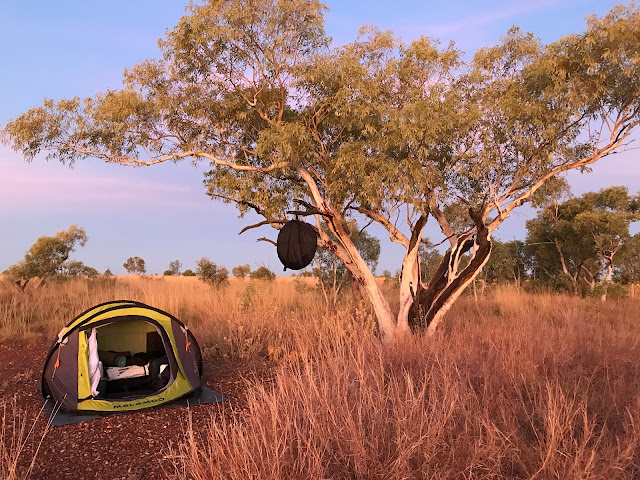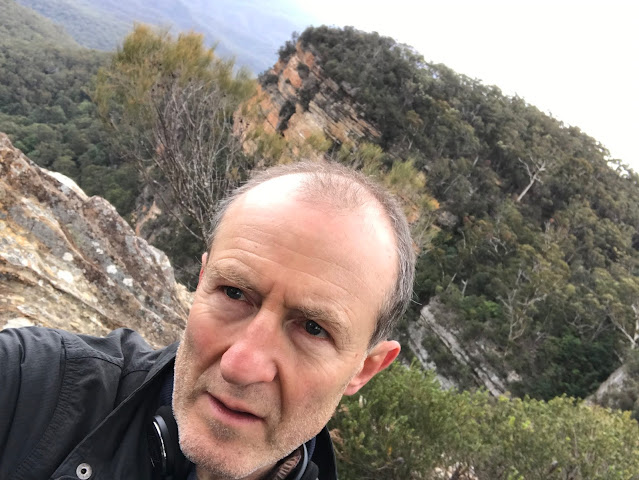About
While preparing a new history and theory of society I am 'filing' the research and rough drafts at my Substack Social Science Files where my subscribers include many well known scholars.
My book can be found here: Capitalism, Institutions, and Economic Development
________________________________
UNIVERSITY DEGREES
Doctor of Philosophy (University of Sussex 1986-1990).
Socio-Economic Implications of Technological Change. Economic and Social Research Council ESRC; Science Policy Research Unit SPRU; The School of Law, Politics, and Sociology.
Thesis: The Politics of Telecommunications Policy in Mexico (1990).
Master of Philosophy (University of Sussex 1984-1986).
Development Studies. UK Institute of Development Studies (IDS). ESRC scholarship.
CNAA Degree First Class (University of Portsmouth 1980-1984). Latin American Studies [the world's first undergraduate Latin American Studies degree (1970) and I was the first student to be awarded a 'First'].
I was born in London and have lived in Chile, Argentina, United States (California), Peru, Mexico, Indonesia, and Australia.
I have British and Australian citizenship because my mother, whose first job in England was as a senior medical social worker at London's Great Ormond Street children's hospital, is still an Australian. Her brother Edward St John was a well-known Australian lawyer and politician with strong liberal-conservative convictions.
On my mother's side I can trace my genealogy through an English aristocratic lineage (Debrett’s Peerage) connecting with two famously radical parliamentarians who are now of relevance to my work on early modern institutional reforms, Oliver St John and Henry St John Bolingbroke.
I am also related to the scholar and intimate friend of John Henry Newman, Ambrose St John (a great uncle). And I am a descendant of cabinet maker, civil engineer, and inventor of the hydraulic press, the flushing toilet, and the famously unpickable lock, Joseph Bramah (a great grandfather).
My father, Frank, was a social scientist at the Tavistock Institute of Human Relations. The Guardian and Sydney Morning Herald published obituaries in 2007. One of his books was The Use and Abuse of Social Science (1986). He was from a non-practising Jewish family in Vienna, and completed his schooling in England. After an initial internment in the Isle of Man, he was a fire warden in London during the war.
His father, Maximilian, was an inventor and businessman who lost his furniture factory when forced to flee Austria in 1938. After the war and internment my grandfather established a furniture manufacturing business in London. His most successful inventions were Cintique chair spring systems. He invented the first artificial ski slope (1939). I stayed with him often in the 1970s after he retired to St Helier on the island of Jersey.
My godparents were Theresa Hayward (Order of Australia), Rosemary Gordon (the analytical psychologist), and Peter Montagnon British intelligence officer and the producer of acclaimed BBC TV series on the history of Western civilisation and life in communist China.
As a child I lived for six years in Buenos Aires and Santiago where my father was with the United Nations. He became a professor of psychology at University of California, Berkeley, during the memorably eventful years of student uprisings 1967-1969. I attended 8 schools in 4 countries, including a German school in Chile and the very enjoyable John Muir Elementary School in Berkeley where I learned to play the clarinet.
I was expelled from the venerable old Highgate School at age fifteen because of my “persistent misdemeanor”. I rebelled against discipline and often truanted by climbing the wall into the derelict West section of Highgate Cemetery. My father is buried in the East section within arguing distance of Karl Marx. I finished 'school' at Kingsway College alongside many 1970s misfits and luminaries such as Johnny Rotten. London life in the 1970s was really rather exciting.
While studying English Literature, US History, and Film Studies at Kingsway, and after finishing, I had a succession of jobs. The most educative were as a porter at the India High Commission, a door-to-door potatoes salesman on tough council estates in East London, a dry ski slope instructor at Alexandra Palace, and warehouse packer for a global trader of exotic animal skins. I enjoy work but, having mastered it, am eager to move on.
Before university I worked as antique furniture restorer in London for four years. I completed a traditional apprenticeship at A.J. Brett, and then set up my own business, renting space with very fine craftsmen (metal and wood) at the restored Clerkenwell Workshops. Then, in 1980, I undertook an academic course in The Study of Decorative Arts at London's Victoria and Albert Museum, and realised I had a scholarly vocation.
I worked at universities in Britain, Latin America, and Australia for 20 years teaching social theory, comparative politics, political economy, and development studies with an emphasis on Latin America and Southeast Asia, and — within Latin America, when I held a teaching post in Argentina — as a freelance consultant on East Asian government-business relations. I taught part-time during my PhD, and my first full time academic post was for 5 years (1990-1995) in the Politics Department of the School of Oriental & African Studies (SOAS), University of London, as a lecturer in the Government and Politics of Southeast Asia.
At SOAS I undertook 12-months field research in South East Asia (based in Indonesia, traveling widely), some fruits of which were published while I worked at the now defunct Institute for International Studies, University of Technology Sydney as a lecturer in Latin American History.
After SOAS and before UTS I sought out new adventures in Argentina and Peru, including a 1-year political consultancy for the runner-up in Argentina's 1995 presidential elections, José Octavio Bordón. While living in Lima, Peru, in 1996-7 I researched a never-completed book about Peru's reelected and still-promisingly reformist 'outsider' president, Alberto Fujimori, until I was sidetracked by the temptation of Australia and the broader more scholarly topic of Good Capitalism.
At UTS (1998-2006) I was Country Studies Coordinator with the politically-sensitive responsibilities of academic content design, student safety, and the scholastic integrity of all of the overseas components of UTS's innovative International Studies degree programs, the first such degrees ever to be offered in Australia.
I was also the Latin America Coordinator, an autonomous adventurous job that sent me on well-funded expeditions to my favorite places in Latin America twice a year, experimenting with routes and means of transport as I established productive partnerships with some of the region’s finest universities and supervised Australian undergraduate and research students dispersed throughout Argentina, Chile and Mexico.
In 2006, the plague of wokeness in academe had begun. My conservative political economy perspective and my efforts to maintain standards of honesty, objectivity and meritocracy in the teaching program of the flagship International Studies degree program became unpopular at University of Technology Sydney. Extreme left academics and the Student Union protested against me, and we parted company on unpleasant terms. My academic career was finished.
In 1987-1988 I worked for 12 months at the social science institute, El Colegio de México, in Mexico City while researching my doctoral thesis on the regulation, corruption, and liberalisation of telecommunications. The argument of The Politics of Telecommunications Policy in Mexico DPhil 1990 was summarised in a book chapter titled 'Hijacking The Public Interest'. Unfortunately, the thesis is no longer available to download at the British Library's EthOS due to a massive cyber attack in 2023. Sadly, also, the long list of high-level interviewees from public and private sectors could not be included in the online version. Given the material I had unearthed on state corruption in Mexico there were privacy and safety concerns.
My PhD was supervised by Carlos Fortin and Alan Cawson. It was examined by Professor Laurence Whitehead of Oxford University. He cites my thesis in several publications, including his State Organization in Latin America Since 1930.
While an undergraduate in 1981-1982 I spent 12 months in Peru researching a BA honours dissertation on the economic history of rural Andean peasant artisanal markets, and took history classes at Universidad Nacional Mayor de San Marcos, the oldest university in the Americas. During that impressionable year I witnessed first-hand the initiations of Shinning Path's brutal marxist war, and I attended the landmark conference in Lima where Hernando de Soto, Milton Friedman, and Mario Vargas Llosa discussed their developmental economic and political 'Other Path'. I still have the (battered) conference brochure, a treasured possession.
A nearby page has a good review of my Impersonal Capitalism book by the economic historian Eric L. Jones, author of The European Miracle.
The originality of the book's argument and the initial reception to it among publishers and scholars (2003-2009) are briefly described here.
Another review of my book can be found at the Economic History Association.
I wrote often at Project Syndicate during 2012-2013 while living on a remote estate at the heart of Reiver country in the Scottish Borders pursuing my new interest in early modern English history.
In 2014, I returned to Australia. Over a 3-year period from 2017 in a 3-ton 4-wheel drive with all the necessary gear and 80L of water for extended remote survival, I accomplished an exploration of the massive Australian wilderness, mostly off-grid and solo, and never in camp sites.
That was in Northern Territory, a welcome bathe, having moved south of the 'croc' (crocodile) zone.
This nomadic phase ended, I have begun work on a new 'book' and created a second website where I explore its topics: Social Science Files.
I live in Australia's Blue Mountains in a lovely old peeling weatherboard surrounded on four sides by a very unkempt English cottage garden, and with dramatic bush views just 10 minutes walk away.
I read 30 good quality novels each year in English or Spanish and listen continuously to my 500+ jazz and classical albums with a preference for Deutsche Grammophon and ECM recordings.
For a supplemental page of photos and videos (home, garden, bush adventures, etc.) click here
 |
| Home (for now) |




